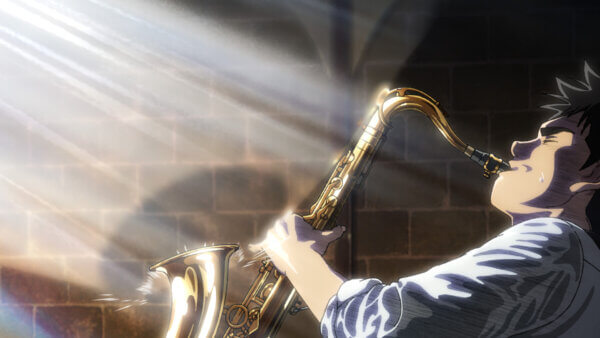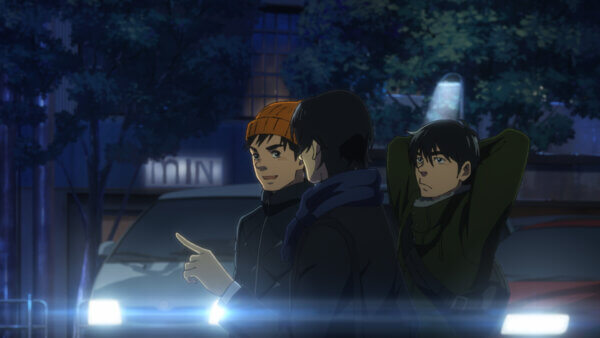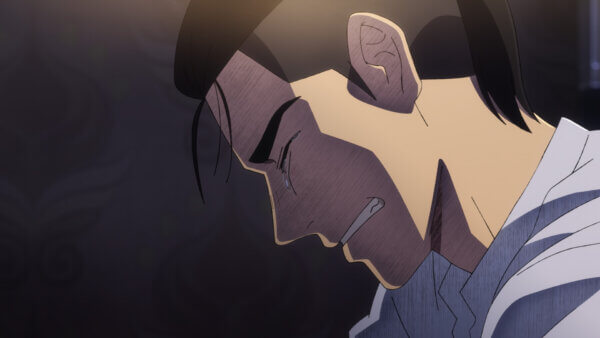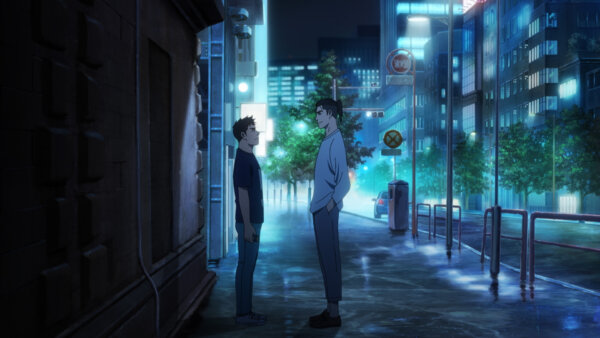Blue Giant | Review
Why be an artist? Every creative is inevitably confronted by this question. As artists, it can feel like the entire infrastructure of society is built to prevent you from flourishing. You might spend years whittling away at your craft, leaking time and money, without making progress, without reaching financial stability, without the people around you appreciating what you do. You may even consider giving in to your friends and family who perennially look to persuade you to give up and learn to code. In those moments of weakness, where you feel like your dedication to your art was an act of foolishness, you need movies like Blue Giant (Dir. Yuzuru Tachikawa) to bring you back from the edge.
Dai, an 18 year old tenor, is a picture of doubtless dedication. From the moment we first see him on screen, a fixture of a snow-bathed landscape, saxophone in hand, tongue frozen onto his mouthpiece, he announces his singular goal into the night air; “I will be the greatest jazz musician in the world.” Dai’s tunnel vision, endearing positivity and faultless belief in his talent burns away all cynicism in the viewer.
Blue Giant expresses the many shades of the relationship between art and artist. For Dai, his connection to jazz is spiritual. His decision to leave for Tokyo is framed as a pilgrimage, one of his first acts being to find a place of worship – an acoustic-friendly riverside walkway under a bridge. Dai’s willingness to play into the dead of night, till the breath from his lungs is depleted, catches the attention of his roommate, Shunji, an agnostic college student looking for something to commit himself to.
Dai turns Shunji into a believer, a rookie who makes up for what he lacks in natural talent with pure passion. Never having picked up a pair of drumsticks before in his life was no barrier from Shunji “getting” jazz, he was in it for the freedom of expression, for the detachment from everything worldly and the entry into a blissful flow state where human and music are one – intentions more pure than the third member of the band, Yukinori, who grows impatient with Shunji’s rudimentary rhythm.
Yukinori is the type of artist who sees success as a birthright and talent as a status symbol. Having played the piano since he was four years old, being confronted by the ferocious talent of Dai and the improving skills of Shunji forces him to consider his outlook on the nature of art as a whole. Yukinori is the ideological core of Blue Giant, someone who is obsessed with the type of person you need to be and the way you “should” make art, who has to grow to see the artistry in everything and submit himself to the chaos of creativity.
Despite their different approaches to art, the three are united in their love for jazz and exist in perfect harmony when on stage together. This harmony is reflected in the animation, which switches from a hand drawn style to include CG elements as the imagery becomes more surrealist. The degree to which this shift is noticeable is slightly problematic. Characters will be a consistent part of the landscape in one shot and blocky, unnatural fits the next. Part of this may be due to the film largely being animated on twos while the CG scenes are noticeably smoother.
Still, the introduction of CG has its benefits. As Dai, Shunji and Yukinori fall deeper into the music, their bodies are removed from the stage and are seen to be soaring the cosmos, flying to the edge of the universe and back in time before they run out of stamina. Their connection to the audience is depicted through waves of colour spilling from each instrument, a heightened combination of sweat, passion and pain.
Blue Giant refuses to be a sanitised look at the creative process and acknowledges the role that pain plays in being an artist. Physical pain is ever-present through the blisters that litter Dai’s hands and the sweat that pours from Shunji’s brow after hours of practice. Each performance the band puts on is an elegant display of artistry but is simultaneously a barrier of pain for each character to push through.
Witnessing three artists channel their souls through their instruments, blisters be damned, is the kind of thing that resets the brain of an aspiring creative. Dai is the best of us, a monument of what we could achieve in a world without second-guessing. He provides a guiding light to Yukinori and Shunji, flawed and doubt-ridden artists who need to be reminded of why they wanted to do this to begin with. For the wandering artists adrift in unfamiliar lands, Blue Giant is the star that’ll guide you back home.
Blue Giant is out now in UK cinemas





